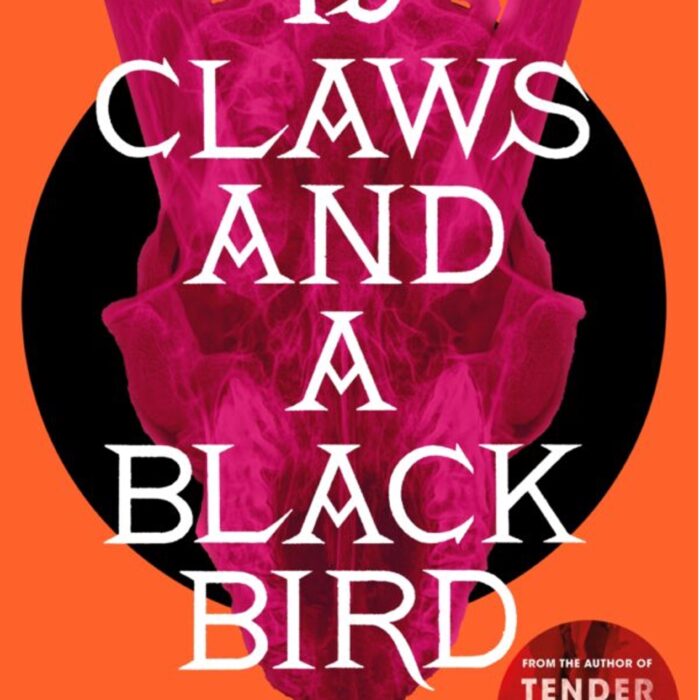You have no items in your cart. Want to get some nice things?
Go shopping“The human heart is resilient. It can bust apart; it can heal.”
Weighing just four pounds, marijuana in her blood, face jaundiced, our heroine starts life as an unwanted bundle left on the steps of a Canadian YMCA. She’s taken in by a nurse, who likes the idea of rearranging her life for a child, but smartly recognises the difference between ideal and commitment and returns the baby. Throughout Y, the idea why of why we need children always circles to the same conclusion: Love, marriage, and children are a remedy for the broken.
“I tell Vaughn that this business of placing kids in other people’s homes is a nice idea and all, but I think we’d all be better off with our own families in the end.”
Debut author Marjorie Celona’s leads with insightful, strong narration from a somewhat ethereal voice the reader can only assume is a day-old child. This voice introduces us to the orphan’s mother, Yula, her family, and the circumstances that landed them at the YMCA steps.
Celona devises clever foster families for our heroine, whose name changes in conjunction with the needs of the families. With Par and Raquelle, whose low-income status prohibits adoption or infertility treatments, our heroine is “Shandi.” But Shandi fails to bring the couple together so she goes to lawyers Julian and Moira. Her new name — Shannon — and role in the family ticks a middle class box guarded by an abusive Julian, but fails to fill the family’s gapping emotional hole. As with Par and Raquelle, once Shannon fails to unite the family, she is returned.
“Y. That perfect letter. The wishbone, fork in the road, empty wineglass. The question we ask over and over. Why? Me with my arms outstretched, feet in first position. The chromosome half of us don’t have. Second to last in the alphabet: almost there.”
Samantha goes into a home and is eventually adopted by Miranda who has a daughter Samantha’s age. Once Samantha stabilises and becomes part of a family, she loses her ability to articulately share her world. In fact, the further Samantha moves from the Y, the more blurred her perceptions.
Not every kid Vaselines an abusive father figure; carves stars in their legs; or starts life in a sweatshirt lying on the concrete step of a workout facility, but we’ve all experienced instances that exemplify the experience of confused love, painful release, and abandonment. Celona brings these experiences to us brilliantly in the first part of the book. But when the narration is handed to a teenager the subtle, painful observations of childhood become annoying overstated attention grabs that dissipate the complicated themes Celona so boldly tackled at the outset of Y.
“She saw it then for the first time; his paranoia, his violence, his possessiveness. She saw other things, too: his sudden loyalty, his need to be loved. She reached for his hand.”
Samantha eventually contacts her biological family. Samantha’s father, Harrison, serves jail time in-part for “Failing to Provide the Necessities of Life to a Child,” a clever send off for a drug addled loose cannon. Her biological mother, Yula, is a grieving teen mom charged with feeding her suicide obsessed alcoholic father. Their relationship is tender as are many in Y, solidifying the comfort of family. Families are tender. Families are insane. Family is family no matter how strong the biological connection. The disaster that befalls Samantha’s biological family is a good argument for population control. What, after all, does anyone know about raising kids?
“Take the vulnerable, sweet, and secret things in life very seriously,” he says when he sees me staring at him, “if you want to be true to yourself.”
Y’s negative view of love and family crystalises into a rather syrupy ending, which triggers Beyoncé’s “Survivor” in a flat, defeating, so-what kind of way. But this is Celona’s debut and for a debut — at least at the beginning — it captivates. Some of the eye rollers in Y — playing dress up as metaphor for finding one’s identity, a pregnancy characterised by a weighty belly and swollen feet — will hopefully disappear in Celona’s subsequent novels.
As soon as Celona settled with “the comfortable” or ordinary, the novel loses some of its luster. One hopes that Celona’s next novel will include characters that can match her lofty ideals. She’s at a fork in the road. A Y as it were.
Y was published in February 2013.





